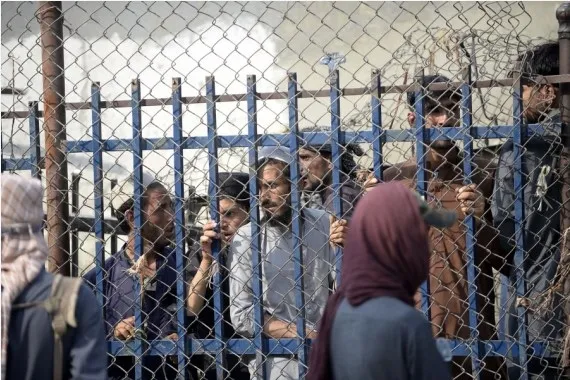Pakistan Maintains Deadline for Afghan Citizens to Depart

Synopsis
Key Takeaways
- Pakistan has set a firm deadline for Afghan nationals to depart.
- The UN has criticized the repatriation process.
- Concerns about safety and unrest persist among Afghan refugees.
- Over 1.7 million Afghans are affected by this decision.
- Experts warn of increased tensions between Pakistan and Afghanistan.
Islamabad, March 21 (NationPress) Pakistan has declined to extend the deadline for holders of the Afghan Citizen Card (ACC) living in the country, insisting that all undocumented foreigners must exit by March 31. Concerns voiced by the United Nations, various human rights organizations, and relevant agencies regarding the repatriation process have been dismissed.
Pakistan's Foreign Office spokesperson, Shafqat Ali Khan, confirmed that there will be no alterations to the timeline for undocumented foreigners and ACC holders to leave voluntarily. He stated that Islamabad has more than met its obligations by accommodating Afghan refugees.
“Authorities have informed us that there is no change in the deadline,” Khan noted.
This marks the second phase of repatriating undocumented and illegal foreign nationals from Pakistan, with many being Afghan nationals. The government set March 31 as the deadline for both ACC holders and illegal foreigners to leave the country voluntarily.
The UN has criticized this decision, urging Pakistan to halt the repatriation of countless undocumented Afghan nationals.
Despite the backlash, Islamabad has reiterated its commitment to its international obligations regarding millions of Afghan refugees.
“We are not bound by the UNHCR. First of all, Pakistan is not a member of the Refugee Convention. Everything we have done for Afghan refugees has been voluntary for the past 50 years. We have fulfilled our international obligations by providing this level of hospitality to Afghans, and we continue to welcome them. However, they must possess Pakistani visas to remain,” Khan added.
The authorities have announced a significant crackdown on ACC holders nationwide, initiating mass deportations through the Pak-Afghan Torkham border.
Pakistan has accused Afghanistan and the Taliban of supporting terrorist groups like the Tehreek-e-Taliban Pakistan (TTP), contributing to unrest within Pakistan. Previously, Pakistan has suspected that terrorists hide among refugees and conduct attacks within the country.
The unilateral decision by Pakistan to repatriate over 1.7 million Afghan nationals has drawn criticism from the Taliban regime, which has called for a gradual repatriation process.
“Refugees should be treated with respect, and their return should be gradual and dignified. We face no security issues nationwide, but certain challenges hinder our ability to prepare for the simultaneous return of all refugees. We hope this process will be implemented gradually,” stated Afghanistan's Foreign Minister Amir Khan Muttaqi.
Approximately three million Afghan citizens currently reside in Pakistan. The repatriation of illegal foreign nationals through the 'Pakistan's Illegal Foreigners Repatriation Programme' commenced in November 2023.
Since then, Pakistan has transitioned from voluntary repatriation to a police crackdown against illegal foreigners. During this second phase, ACC holders have also been included in the repatriation efforts.
Experts suggest that the repatriation of millions of Afghans, many of whom have lived in Pakistan for decades and fear for their safety if they return home, may exacerbate tensions between the two nations.









